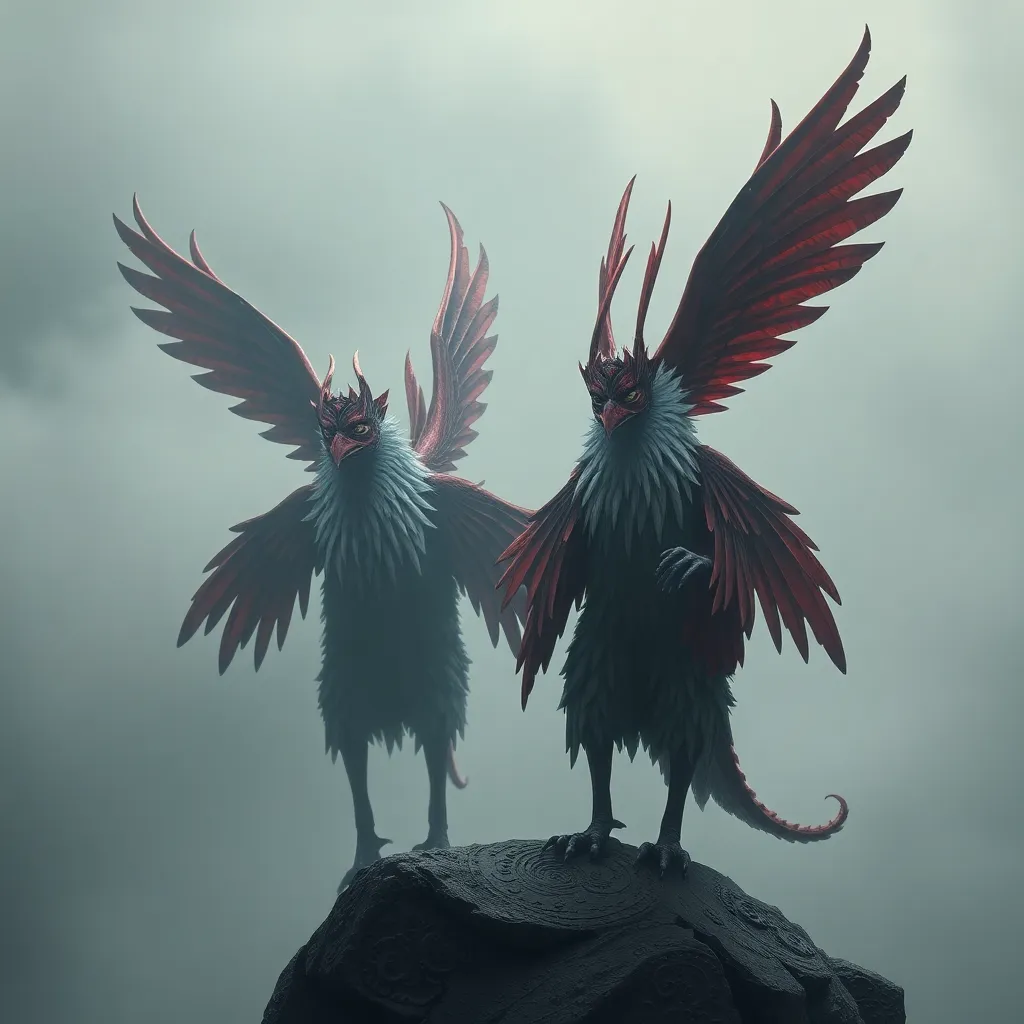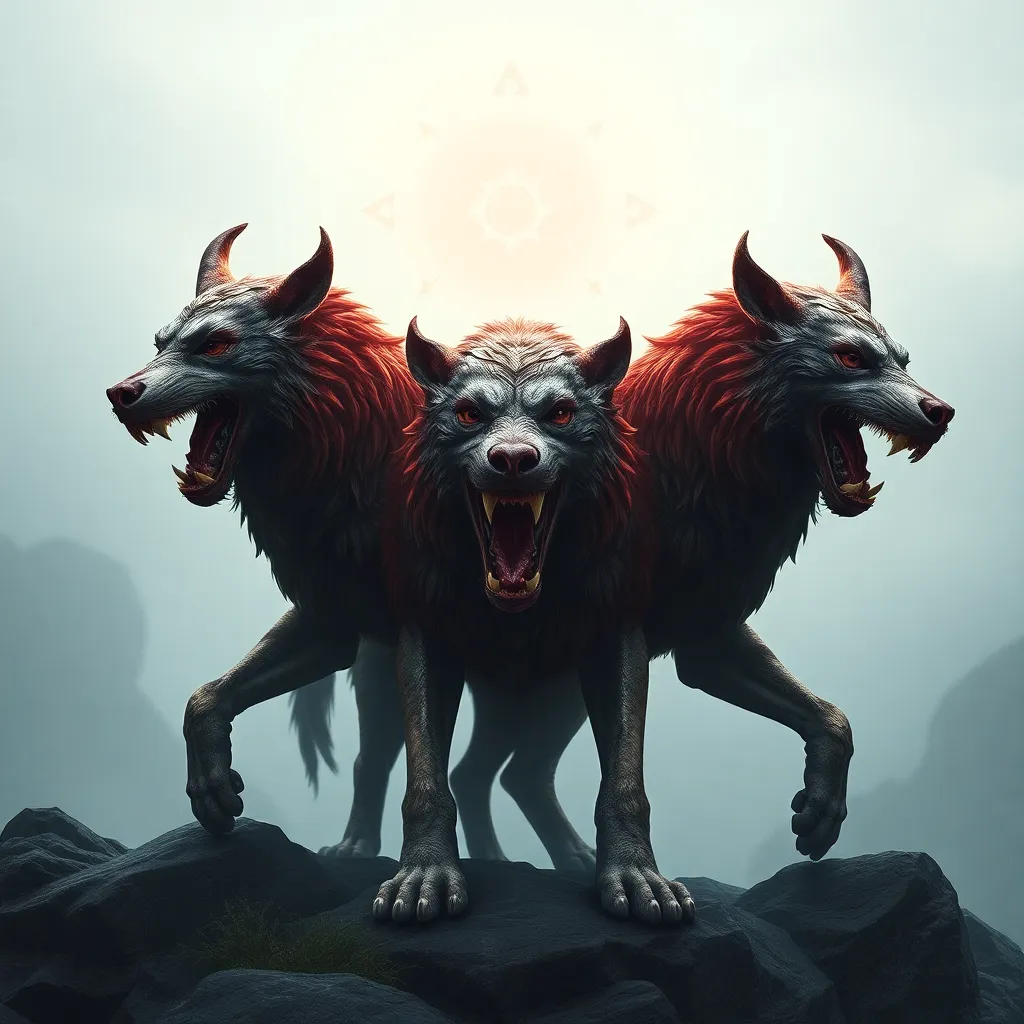The Tengu’s Wisdom: Exploring Their Role as Teachers and Guardians of Knowledge
I. Introduction
The Tengu, enigmatic creatures in Japanese folklore, have captivated the imagination of many. Traditionally depicted with human and bird-like features, they are often associated with mountains and forests. Tengu hold a significant place in Japanese culture, embodying the duality of being both revered and feared. They have come to symbolize wisdom and guardianship, serving as protectors of sacred knowledge.
This article aims to delve into the multifaceted role of Tengu as teachers and keepers of knowledge, exploring their historical context, dual nature, and the lessons they impart to humanity.
II. Historical Context of Tengu in Folklore
A. Origins of Tengu mythology
The origins of Tengu mythology can be traced back to ancient Japanese beliefs, with influences from Chinese mythology. Initially, Tengu were viewed as malevolent spirits or demons but over time, their portrayal evolved.
B. Evolution of Tengu representation over time
As the centuries progressed, Tengu transformed from fearsome beings to more complex figures embodying wisdom and knowledge. They began to be recognized as protectors of the mountains and as teachers of martial arts and spiritual practices.
C. Influence of Tengu on Japanese culture and spirituality
Tengu have had a profound impact on Japanese culture, appearing in various forms of art, literature, and theater. They are often depicted in traditional Noh and Kabuki performances, symbolizing the fine line between humanity and the supernatural.
III. The Dual Nature of Tengu: Tricksters and Teachers
A. Exploration of Tengu as mischievous figures
Tengu are frequently characterized as tricksters, engaging in playful deception and mischief. Their antics often serve to challenge the arrogance of humans, teaching humility and respect for nature.
B. Tengu as wise guides: lessons learned through their actions
While Tengu may engage in trickery, they also act as wise guides, imparting critical life lessons. Their actions often lead humans to self-discovery and growth, highlighting their role as mentors.
C. Balancing the duality of their nature in folklore
The dual nature of Tengu—both as tricksters and teachers—provides a rich narrative that illustrates the complexities of wisdom. This balance is essential in understanding their role in Japanese mythology.
IV. Tengu as Guardians of Hidden Knowledge
A. The concept of sacred knowledge in Japanese traditions
In Japanese traditions, knowledge is often viewed as sacred and powerful. The Tengu, as guardians of this knowledge, play a crucial role in its preservation and dissemination.
B. Tengu’s role in protecting and revealing wisdom
Tengu are believed to protect hidden knowledge, ensuring it is only revealed to those deemed worthy. This guardianship emphasizes the importance of respect and the right intentions in the pursuit of wisdom.
C. Examples of Tengu legends involving the transfer of knowledge
- In one legend, a wandering monk encounters a Tengu who teaches him the secrets of martial arts.
- Another story tells of a scholar who is guided by a Tengu to discover ancient texts hidden in the mountains.
V. Tengu in Art and Literature
A. Representation of Tengu in traditional and modern art
Tengu have been depicted in various art forms, from ancient scrolls to contemporary illustrations. Artists often portray them with a blend of human and avian features, symbolizing their connection to both the earthly and the spiritual realms.
B. Literary portrayals of Tengu as teachers and mentors
In literature, Tengu often emerge as characters who provide guidance and wisdom to protagonists. Their stories frequently highlight themes of transformation, growth, and the pursuit of knowledge.
C. Analysis of notable works featuring Tengu and their wisdom
Notable works, such as the “Konjaku Monogatari” and various collections of folktales, feature Tengu prominently, showcasing their role as both harbingers of mischief and vessels of wisdom.
VI. Contemporary Interpretations of Tengu Wisdom
A. Modern adaptations of Tengu in popular culture
In recent years, Tengu have found their way into popular culture, appearing in anime, manga, and video games. These adaptations often maintain their traditional characteristics while introducing new dimensions to their personas.
B. Tengu’s relevance in today’s discussions about knowledge and mentorship
As society increasingly values mentorship and knowledge sharing, Tengu serve as a metaphor for the complexity of these relationships, emphasizing the need for humility and respect in learning.
C. Cultural significance of Tengu in contemporary Japanese society
Tengu continue to hold cultural significance in Japan, appearing in festivals and local folklore, reminding people of the importance of wisdom and the balance of nature.
VII. Lessons from the Tengu: Insights for Personal Growth
A. Key teachings attributed to Tengu
- Embrace humility: Recognize the limits of your knowledge.
- Value nature: Understanding and respecting the environment is key to wisdom.
- Learn from challenges: Adversity often leads to growth.
B. How Tengu wisdom can be applied to personal development
The teachings of Tengu can be integrated into personal development practices, encouraging individuals to seek knowledge with an open heart and a willingness to learn from various experiences.
C. The role of Tengu in fostering resilience and creativity
Tengu inspire resilience through their stories of overcoming challenges and creativity through their mischievous nature, encouraging individuals to think outside the box in problem-solving.
VIII. Conclusion
In conclusion, Tengu play a vital role as teachers and guardians of knowledge in Japanese folklore. Their dual nature as tricksters and wise guides enriches the narratives surrounding them, offering valuable lessons on humility, respect, and the pursuit of wisdom. The lasting legacy of Tengu continues to shape cultural and spiritual understanding, inviting further exploration of their wisdom across various contexts.



